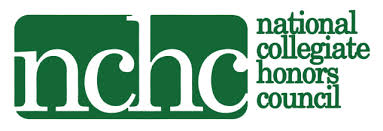The Articulate Citizen
Instructor(s): Richard Obenauf
Course Description
Our founders believed a republic could survive only if its citizens could read critically, think independently, and argue persuasively. This Honors writing seminar revives that ideal through a crash course in American history told in its own words. Students will examine key documents—from Common Sense and the Declaration of Independence, the Federalist Papers, and the Seneca Falls Declaration of Sentiments and Resolutions to major speeches and essays by Lincoln, Carnegie, Roosevelt, Eisenhower, Kennedy, King, and others—and use them as models for their own writing. Alongside these classics, we’ll analyze modern news coverage to see how bias, framing, and ideology shape the stories we read and tell. You’ll learn to recognize persuasive strategies in history, journalism, and daily conversation—and to use them responsibly in your own work. Assignments include a reading journal, short analytical essays, and an original research project based on primary sources. Small, discussion-driven, and rigorous by design, The Articulate Citizen challenges you to write clearly, think historically, and participate meaningfully in the ongoing American conversation.
Texts
Our reading list centers on foundational primary sources of our democracy, such as the Declaration of Independence, the Seneca Falls Declarations of Sentiments and Resolutions, and speeches and essays by George Washington, Abraham Lincoln, Teddy Roosevelt, Woodrow Wilson, Herbert Hoover, Franklin Roosevelt, Dwight Eisenhower, John F. Kennedy, Martin Luther King Jr., and Lyndon Johnson. Other authors on our whirlwind syllabus include Andrew Carnegie, Walter Lippmann, Edward R. Murrow, Potter Stewart, E.B. White, and George Lakoff. We will also look at media coverage of current events in newspapers including the New York Times and the Wall Street Journal.
Requirements
As with all Honors courses, consistent attendance and active participation are required. Students are expected to keep a reading journal, which will form the basis for a series of short reaction papers. There will be five brief exercises and three analytical essays, the last of which is a research project that you will expand into your final project.
About the Instructor(s): Richard Obenauf
Richard Obenauf began as an English major whose research turned him into a political historian. A scholar of censorship, tolerance, and intolerance, he earned his BA from UNM and his MA and PhD from Loyola University Chicago.



Social Media
For news, information, prizes and more fun stuff follow us on our social media!
Honors College Resources